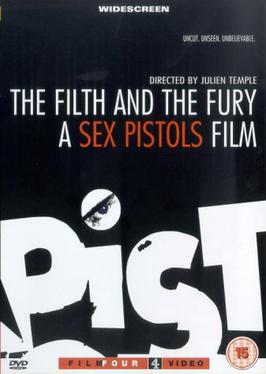
Maryhill is an area in the north-west of Glasgow in Scotland. A former independent burgh and the heart of an eponymous local authority ward, its territory is bisected by Maryhill Road, part of the A81 road which runs for a distance of roughly three miles between Glasgow city centre and the suburban town of Bearsden.
The Gorbals is an area in the city of Glasgow, Scotland, and former burgh, on the south bank of the River Clyde. By the late 19th century, it had become densely populated; rural migrants and immigrants were attracted by the new industries and employment opportunities of Glasgow. At its peak, during the 1930s, the wider Gorbals district had swollen in population to an estimated 90 000 residents, giving the area a very high population density of around 40 000/km2. Redevelopment after WWII has taken many turns, and the area's population is substantially smaller today. The Gorbals was also home to 16 high-rise flat blocks; only six are standing as of 2024, and two are planned for demolition.

Julien Temple is a British film, documentary and music video director. He began his career with short films featuring the Sex Pistols, and has continued with various off-beat projects, including The Great Rock 'n' Roll Swindle, Absolute Beginners and a documentary film about Glastonbury.

Castlemilk is a district of Glasgow, Scotland. It lies to the far south of the city centre, adjacent to the Croftfoot and Simshill residential areas within the city to the north-west, the town of Rutherglen - neighbourhoods of Spittal to the north-east and Fernhill to the east, Linn Park and its golf course to the west, and the separate village of Carmunnock further south across countryside.
Arden is a medium-sized housing estate on the south-western edge of the city of Glasgow, Scotland. The M77 motorway runs directly to the west of the neighbourhood, with Junction 3 serving the area; a small industrial estate is located to the south-east. The residential area of Carnwadric is to the north-east of Arden, and the Jenny Lind part of Deaconsbank to the south, while the land to the north is open ground and woodland.

Drumchapel, known locally as 'The Drum', is a district in the north-west of the city of Glasgow, Scotland. It borders Bearsden to the north-east and Drumry to the south-west, as well as Blairdardie, Garscadden, Knightswood and Yoker in Glasgow to the south; land to the north is undeveloped and includes the course of the Roman-era Antonine Wall. The name derives from the Gaelic meaning 'the ridge of the horse'.

The Aylesbury Estate is a large housing estate located in Walworth, South East London.

The Filth and the Fury is a 2000 British rockumentary film directed by Julien Temple. It follows the story of punk rock pioneers the Sex Pistols from their humble beginnings in London's Shepherd's Bush to their fall at the Winterland Ballroom in San Francisco. It is considered a continuation of Temple's first documentary centered on the band, titled The Great Rock and Roll Swindle, but acts as an opportunity for the surviving members of the group to tell their side of the story.

Robin Hood Gardens is a residential estate in Poplar, London, designed in the late 1960s by architects Alison and Peter Smithson and completed in 1972. It was built as a council housing estate with homes spread across 'streets in the sky': social housing characterised by broad aerial walkways in long concrete blocks, much like the Park Hill estate in Sheffield; it was informed by, and a reaction against, Le Corbusier's Unité d'Habitation. The estate was built by the Greater London Council, but subsequently the London Borough of Tower Hamlets became the landlord.

The Ferrier Estate was a large housing estate located in Kidbrooke, Greenwich, south London. Built as social housing between 1968 and 1972, it was demolished as part of the Kidbrooke Vision scheme between 2009 and 2012 and replaced with housing and retail space known as Kidbrooke Village.

The Great Global Warming Swindle is a 2007 British polemical documentary film directed by Martin Durkin. The film denies the scientific consensus about the reality and causes of climate change, justifying this by suggesting that climatology is influenced by funding and political factors. The program was formally criticised by Ofcom, the UK broadcasting regulatory agency, which ruled the film failed to uphold due impartiality and upheld complaints of misrepresentation made by David King, who appeared in the film.

The Red Road Flats were a mid-twentieth-century high-rise housing complex located between the districts of Balornock and Barmulloch in the northeast of the city of Glasgow, Scotland. The estate originally consisted of eight multi-storey blocks of steel frame construction. All were demolished by 2015. Two were "slabs", much wider in cross-section than they are deep. Six were "points", more of a traditional tower block shape. The slabs had 28 floors, the point blocks 31, and taken together, they were designed for a population of 4,700 people. The point blocks were among the tallest buildings in Glasgow at 89 metres (292 ft), second in overall height behind the former Bluevale and Whitevale Towers in Camlachie. The 30th floor of the point blocks were the highest inhabitable floor level of any building in Glasgow.

The Carpenters Estate is located in Stratford, Newham, East London, close to the Queen Elizabeth Olympic Park. The estate is formed of low rise social housing and three tower blocks. The estate has been continually earmarked for demolition and redevelopment.
Mickey "Beans" O'Brien is an English composer and musician.

Public housing in the United Kingdom, also known as council housing or social housing, provided the majority of rented accommodation until 2011, when the number of households in private rental housing surpassed the number in social housing. Dwellings built for public or social housing use are built by or for local authorities and known as council houses. Since the 1980s non-profit housing associations became more important and subsequently the term "social housing" became widely used, as technically council housing only refers to housing owned by a local authority, though the terms are largely used interchangeably.

A council house, corporation house or council flat is a form of British public housing built by local authorities. A council estate is a building complex containing a number of council houses and other amenities like schools and shops. Construction took place mainly from 1919 to 1980s, as a result of the Housing Act 1919. Though more council houses have been built since then, fewer have been built in recent years. Local design variations exist, however all followed local authority building standards. The Housing Acts of 1985 and 1988 facilitated the transfer of council housing to not-for-profit housing associations with access to private finance, and these new housing associations became the providers of most new public-sector housing. The characterisation of council houses as 'problem places' was key for leading this movement of transferring public housing stock to the private arena. By 2003, 36.5% of the social rented housing stock was held by housing associations.

Tower blocks are high-rise buildings for residential use. These blocks began to be built in Great Britain after the Second World War. The first residential tower block, "The Lawn", was constructed in Harlow, Essex, in 1951; it is now a Grade II listed building. In many cases, tower blocks were seen as a "quick-fix" to cure problems caused by the existence of crumbling and unsanitary 19th-century dwellings or to replace buildings destroyed by German aerial bombing. It was argued that towers surrounded by public open space could provide for the same population density as the terraced housing and small private gardens they replaced, offering larger rooms and improved views, whilst being cheaper to build.

Andrea Luka Zimmerman is a Jarman Award winning artist, filmmaker and cultural activist whose work focuses on aspects of working class experience, and that of people margnalised by mainstream society, that are seldom seen or discussed. Andrea works across media in a committed and heightened register that allows those lives portrayed their full representation beyond simple and reductive definitions of economy, geography and gender.
Paul Sng is a British Chinese documentary filmmaker, based in Edinburgh.
Ayo Akingbade is an artist, writer and director. She has directed nineteen short films. Her short films explore the mundanity of urban life in full swing in London's inner-city boroughs and industrial life in her family's hometown in Nigeria.















